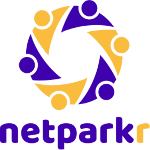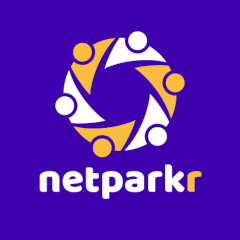Han Park, CEO of Payment Labs, is a visionary with over two decades of experience in project management, venture capital, new company development, and start-up operations. The company has processed over $20 million in prize payouts and is regarded as reliable by Ubisoft, Sega, Krafton, and other companies. Park’s experience includes serving as president of Turtle Entertainment America, a division of ESL Gaming, which was sold for over $1 billion in 2022. Payment Labs charges a service fee for large, discrete batch payments and benefits from volume-based arrangements with financial partners.
Han Park is the CEO of Payment Labs, a streamlined payment platform that enables companies to send payments quickly and legally to anybody, anywhere. The quickly growing business has processed more than $20 million in prize payouts, is regarded as reliable by Ubisoft, Sega, Krafton, and others, and has been highlighted in media such as The Gamer and Venture Beat. Han is a “realistic visionary” with experience in project management, venture capital, new company development, and start-up operations. He has been at the forefront of innovation and business growth for more than two decades. He formerly held the position of president of Turtle Entertainment America, a division of ESL Gaming, the largest esports organization in the world, which was sold for more than $1 billion in 2022, before joining Payment Labs.
How did you begin working in this field?
The management of prize payments following contests, a problem with which the esports sector has faced from its start, was one of our biggest issues while I was an executive at an esports organization that hosted or produced esports tournaments and events. Prize payout complexities increased as the sector grew, and as a user, I was unable to find an existing payment solution to address our payout problems. I decided to create a solution. This is where my first product, Prize Payments, came from.
How do you make a living?
To compensate the expenses of employing our turnkey solution to manage the payouts, Payment Labs charges the payor a service fee for large, discrete batches of payments. We charge a flat monthly price with tiered reductions for more frequent batch runs based on the anticipated annual volume of payments. We also benefit from the transactions we enable through volume-based arrangements with financial partners.
How much time did it take for you to turn a profit?
Payment Labs is currently in the early stages of development and is not yet profitable, but as our yearly revenue growth approaches 100%, we expect becoming profitable within the next 12 months.
Did you ever wonder if it would work when you first started? If so, what was your reaction?
We started our sales efforts and introduced Prize Payments, our first gaming and esports product, in November 2018. We had excellent growth and momentum when it took us around six months to land our first $1 million client. The COVID-19 epidemic wiped out all live video game tournaments and esports contests in 2020. This put a stop to our development because the vast bulk of the prize money we processed was related to important live events.
I considered shutting down the company and asked the team if we should continue with the initiative in light of the shutdown and the uncertainty around when live events would restart. We decided to focus on advancing the platform to the next version. It ended up being one of our best choices because we were able to expand Prize Payments to handle reimbursements for both live and online events. The esports sector seamlessly shifted from live to online competitions. In the global digital economy, where the demand for efficient and compliant business payments to individuals – such as content creators and influencers – is rising in the post-pandemic world, the ability to support online events opened the door to other industries with comparable payout challenges. Rather of shutting down, we doubled down and grew by founding Payment Labs. With the inclusion of Mallo, a more comprehensive offering that focuses on effective and legal business-to-consumer payments, we also broadened our platform to include more related sectors.
How did you get your first customer?
Having worked in the esports sector for more than 20 years, I had developed contacts with important individuals at the game publisher and tournament organizer levels who shared my concerns about pay. I made contact with a select group of people I knew were looking for a quick fix to handle a backlog of prize payments from past competitions.
It was challenging to persuade our first major game publisher to join Payment Labs because the platform was new and had not yet proven itself on the market. Despite the fact that our initial sales cycle took much longer than we had planned, we were lucky to have a team member who joined a target client and actively promoted Payment Labs internally.
What type of marketing approach do you use that consistently brings in new business (other than referrals)?
As a startup, Payment Labs has been frugal with its marketing budget while developing a go-to-market plan for each of the industries we aim to serve. We have been working with beta users to gain feedback on our platform and services in order to assess if they are a suitable match for the market as part of our study into these target sectors.
Additionally, we use LinkedIn to organize meetings with important decision-makers at target firms as well as to distribute material with our network. We want to raise our marketing expenditure as Payment Labs grows and complete our go-to-market plan.
What was the most challenging choice you had to make recently?
From the beginning of Payment Labs until the present, I’ve had to make some challenging decisions.
The hardest choice I’ve had to make in the last few months was how to use money from a recent raise to build the company and expand into related industries, including paying independent contractors, content producers, and NIL athletes, despite the startup’s limited funding. It is challenging to decide where to make cost reductions, where to invest to speed up development, and how to manage the budget in uncertain times to lengthen the runway due to the current economic climate.
What do you think makes you successful, in your opinion?
The mix of perseverance, empathy, cooperation, timing, networking, and good fortune led to my achievement. The successful firms I have contributed to all have strong team dynamics. It is essential to collaborate with coworkers and team members who hold the same beliefs, goals, and vision. I think that the group of smart, passionate, and hardworking people I’ve worked with has contributed significantly to my professional success.
What was your most fulfilling professional experience?
For Payment Labs, the most satisfying moment was when we signed our first customer and finished processing six months’ worth of overdue prize payments in less than a month.
When I managed esports events and tournaments, late prize payments regularly ruined an otherwise great occasion. It was common for winners to have to wait weeks, months, or even a year to get their rewards because of the slow onboarding and settlement processes. I wanted to address this with Payment Labs.
We have been able to streamline the enrollment procedure and quicken payouts, so that winners’ rewards are paid into their bank accounts either right away or shortly after they return from a certain event. I’m thrilled that we were able to accomplish this challenging goal because it is practically unheard of in the highly competitive sports sector.
What does the future hold for your company? What are you most anticipating?
We first started this business to address a payment problem in esports, but it has now grown to cover a lot more. We have broadened the system’s application outside of esports since establishing the platform and updating to the current 2.5 version of our solution.
I am optimistic that as we continue to grow, we will be able to assist other industries with similar payment issues, including the demand for quick and compliant international transfers from corporations to people.
We are excited to provide our platform and services to neighboring sectors that face comparable issues in delivering compliant business payments to individuals, especially in light of the fact that new industries, platforms, and businesses have developed in the post-pandemic global digital economy. The addressable market opportunity for Payment Labs is increased to approximately $5 billion by the possibility of development into related industries.
What business-related books have influenced you?
The last business book I finished reading cover to cover was Jack Welch’s Winning, which served as the chairman and CEO of General Electric. This happened almost twenty years ago, but reading about Welch’s forty years at GE was intriguing, and it effectively served as a manual for starting and running a firm.
I couldn’t put the book down once I started reading it. As I read, I underlined and made notes on almost every page. Winning showed me that I had to learn the foundational concepts of corporate principles, strategy, and mission, as well as how to empower and develop team members into leaders and use management techniques to deal with crises.
I don’t read many novels now from beginning to end, but I enjoy keeping up with the newest technical advancements and am an avid reader of business trade publications and articles.
What advice would you give to yourself in the past?
I would advise my younger self to do the following two things: 1. Encourage others to contribute to your efforts so that you may achieve your goals as a team. This fosters a sense of worth and participation among all team members in the overall mission. 2. Instead of becoming the bottleneck, provide tasks and responsibilities to the rest of your team.
I thought I had to be in charge and handle everything since I was a young professional and business owner. As a result, the person was always worn out and nervous, which led to hasty judgments that were bad for the businesses. Additionally, it frequently led to strained working relationships, which made it more challenging to fulfill the company’s overall goals and mission.
I’ve discovered that making mistakes is okay as long as they’re manageable, provided you learn from them and don’t make the same mistakes again.
For further information
I’m always eager to mentor aspiring business owners, esports industry enthusiasts, and my coworkers. I may be reached on LinkedIn or by email at han@esportsconsulting.com.
We gather unique business case studies from all over the internet, to inspire you with a wide range of business ideas. This case study was supervised by our team and it definitely caught our interest. You can find other inspiring business stories here.







